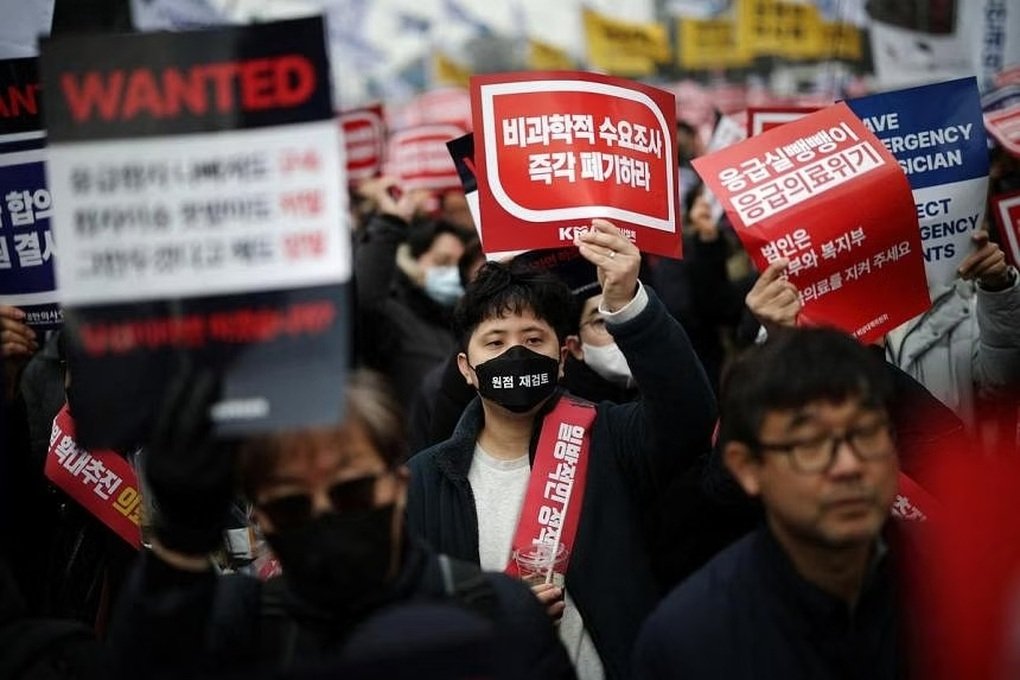(Dan Tri) – After passing the negotiation deadline, the Korean government announced that it would begin legal actions against thousands of doctors participating in recent strikes.
Doctors in Korea strike (Photo: Reuters).
Reuters quoted a Deputy Minister of Health of South Korea today, March 4, saying that the government will suspend the licenses of about 7,000 resident doctors due to participating in strikes and refusing to return to work.
On the same day, South Korean Health Minister Cho Kyoo-hong said on national television that authorities would begin investigating hospitals and take legal action against resident doctors who refuse to return.
`From today, we plan to conduct on-site inspections to confirm that the doctors have not returned to work and will take legal action, without exception. I want to emphasize those doctors who have not returned to work.`
Conversely, for doctors who participated in the strike but have returned to work, the Korean government will consider extenuating circumstances when contemplating any sanctions against them.
Doctor strikes across South Korea broke out in early February after the government announced it would add 2,000 spots to the annual quota for medical students, up from the current 3,000.
The above plan is part of the Korean government’s efforts to address the shortage of doctors, especially in rural areas and essential medical fields, such as high-risk surgery, pediatrics,
However, according to doctors, this does not solve the problem of shortage of human resources, which is limited to specific specialties such as emergency resuscitation, where salaries are low and working conditions are difficult.
The protesting doctors say the government should first address the issue of salaries and working conditions before trying to increase the number of doctors.
The Korean government announced on February 26 that it would not prosecute doctors participating in the strike if they agreed to return to work before March. However, to date, neither side has shown any signs of
Over the weekend, an estimated 40,000 doctors continued to participate in protests.
The protest took place one day after the deadline for the government to require trainee doctors to return to work expired.
The resignation of thousands of resident doctors and trainee doctors at major hospitals is putting great pressure on the Korean medical industry.
